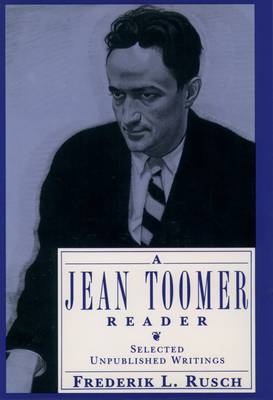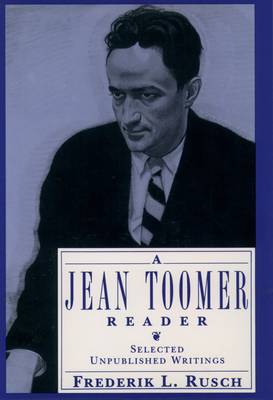
Bedankt voor het vertrouwen het afgelopen jaar! Om jou te bedanken bieden we GRATIS verzending (in België) aan op alles gedurende de hele maand januari.
- Afhalen na 1 uur in een winkel met voorraad
- In januari gratis thuislevering in België
- Ruim aanbod met 7 miljoen producten
Bedankt voor het vertrouwen het afgelopen jaar! Om jou te bedanken bieden we GRATIS verzending (in België) aan op alles gedurende de hele maand januari.
- Afhalen na 1 uur in een winkel met voorraad
- In januari gratis thuislevering in België
- Ruim aanbod met 7 miljoen producten
Zoeken
€ 156,45
+ 312 punten
Omschrijving
Jean Toomer achieved instant recognition as a critic and thinker in 1923 with the publication of his novel Cane, a harsh, eloquent vision of black American hardship and suffering. But because of his reclusive, introspective nature, Toomer's fame waned in later years, and today his other contributions to American thought and literature are all but forgotten. Now, this collection of unpublished writings restores a crucial dimension to our understanding of this important African American author. Thematically arranging letters, sketches, poems, autobiography, short stories, a play, and a children's story, Frederik Rusch offers insight into Toomer's mind and spirituality, his feelings on racial identity in America, and his attitudes toward and ideas about Cane. Rusch highlights Toomer's reflections on America, its people, landscape, and politics, reveals his significance for the problems and issues of today, and helps us understand Toomer not only as writer, but also as social critic, prophet, mystic, and idealist. Exploring Toomer's attempts to find self-realization and transcend social and cultural definitions of race, this book offers a unique view of the United States through the life of one of its most significant and fascinating intellectuals.
Specificaties
Betrokkenen
- Auteur(s):
- Uitgeverij:
Inhoud
- Aantal bladzijden:
- 320
- Taal:
- Engels
Eigenschappen
- Productcode (EAN):
- 9780195083293
- Verschijningsdatum:
- 16/12/1993
- Uitvoering:
- Paperback
- Formaat:
- Trade paperback (VS)
- Afmetingen:
- 149 mm x 229 mm
- Gewicht:
- 517 g

Alleen bij Standaard Boekhandel
+ 312 punten op je klantenkaart van Standaard Boekhandel
Beoordelingen
We publiceren alleen reviews die voldoen aan de voorwaarden voor reviews. Bekijk onze voorwaarden voor reviews.









